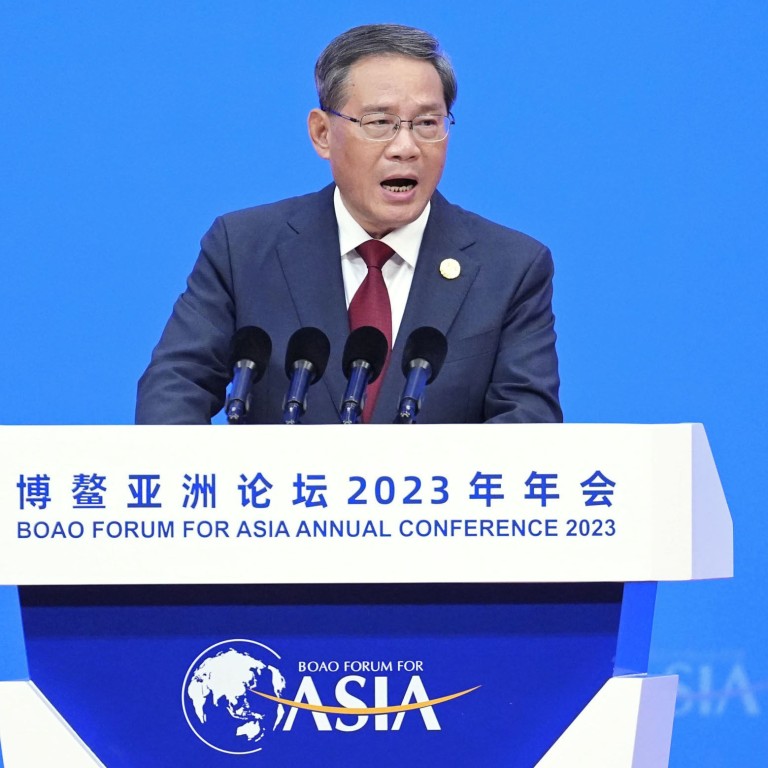
China trade: Beijing targets exporters for help on rocky road to economic recovery
- The State Council says it is working on ways to stabilise trade and boost market confidence
- Overseas buyers are looking for alternative sources and demand in general is waning, analysts say
China plans to launch a fresh series of incentives to help exporters secure overseas orders and tap growth in developing markets as economic signals point to greater challenges ahead.
At a State Council meeting on Friday, Premier Li Qiang said Beijing was working on “a combination of supportive policies” for the sector, warning the economic recovery was at a critical stage and more measures were needed to boost market confidence and “consolidate the growth momentum”.
“We must help exporters to secure orders and expand markets with a combination of trade stabilisation policies,” state news agency Xinhua reported, citing the council’s statement from the meeting.
“We must try every means to stabilise exports to developed economies, and guide exporters to explore the markets of developing countries and the Association of Southeast Asian Nations.”
We’re open for business, China says in renewed pledge to open markets
The report did not say what kind of support would be given but previous meetings of the Ministry of Commerce suggested the help could relate to customs procedures, logistics, funding and bigger market access via international trade agreements.
China, the world’s biggest commodity exporter for more than a decade, reported explosive growth in trade in 2020-2021 as the coronavirus pandemic weighed on the output of other countries. But that growth began to wane from November last year after most countries emerged from the pandemic.
That expectation is backed by the new export order subindex within China’s official manufacturing purchasing managers’ index, which fell to 50.4 in March from 52.4 a month earlier. A result over 50 indicates expansion.
The restructuring of global supply chains and value chains has become increasingly severe
One of the biggest areas of weakness is US-bound shipments, which dropped 21.8 per cent in the first two months of this year, as the balloon saga aggravated bilateral tensions. In terms of value, the US is now the third-largest export destination after Asean and the European Union.
Wen Bin, chief economist of China Minsheng Bank, attributed the fall to decoupling in supply chains by some Western countries as well as weaker overseas demand.
“Developed countries will face an economic downward trend amid interest rate hikes,” he wrote in a research note on Friday.
“The restructuring of global supply chains and value chains has become increasingly severe.
“China, as a super large participant of the global economic division of labour, will be impacted first.”
The fall in exports will pose a challenge to Beijing’s full-year growth target of around 5 per cent, given that net exports contributed 17 per cent of China’s economic growth last year.
International Monetary Fund managing director Kristalina Georgieva said earlier this week that she expected 3 per cent global economic growth this year, below the 3.4 per cent reported last year.
The World Trade Organization also said the growth in the global merchandise trade would slow to 1.7 per cent this year from 2.7 per cent in 2022.
After the coronavirus outbreak, many developed countries realised that overreliance on a single global industry is risky
Zhang Ming, deputy head of the Chinese Academy of Social Sciences’ Institute of Finance and Banking, warned on Saturday that major buyers of Chinese goods were searching for alternative suppliers.
“After the coronavirus outbreak, many developed countries realised that overreliance on a single global industry is risky,” he told a forum in Beijing.
China’s customs agency is due to release trade data next week.
The authorities have also rolled out the red carpet for foreign buyers taking part in the Canton Fair, which starts on April 15.

